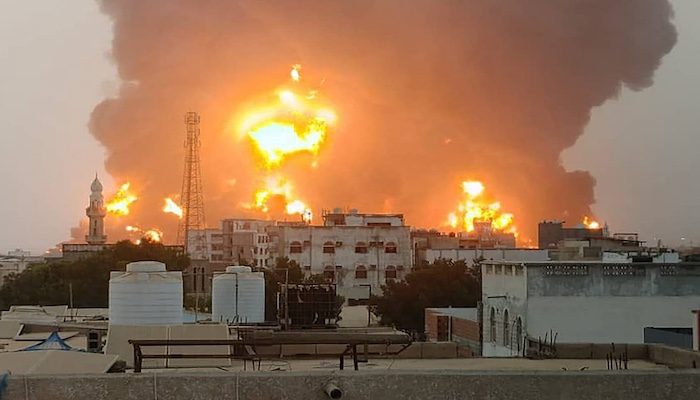
The US intensifies airstrikes against Yemen’s Houthi rebels, focusing on Iran’s influence
Trump has increased US airstrikes against the Houthis in an effort to halt marine attacks in the area and sabotage Iran’s backing.
Targeting the Houthi rebels in Yemen, the United States has begun a new campaign of heavy bombings under President Donald Trump.
At least 53 people, including children, were killed in the weekend’s hits, and more were injured. As part of a larger pressure campaign that Trump is now directing at Iran, the primary benefactor of the Houthis, the effort is probably going to continue.
Using drones and missiles, the Houthi rebels assaulted more than 100 merchant ships between November 2023 and January of this year, sinking two of them and killing four sailors. The strikes were portrayed by their leadership as an attempt to put an end to Israel’s conflict against Hamas in the Gaza Strip. Along with suppressing public criticism of the Houthis’ violations of human rights and crackdowns on aid workers and dissidents, the effort also increased the Houthis’ profile in the larger Arab world.
Trump said in a post on his social media site Truth Social that the Houthis were the target of his administration’s “unrelenting campaign of terrorism, violence, and piracy.” He pointed to the disruption created by Houthi attacks in the Red Sea and Gulf of Aden, which are important waterways for the transportation of goods and energy between Asia and Europe via Egypt’s Suez Canal.
Trump declared that he would “use overwhelming lethal force until we have achieved our objective.”
Beginning in January 2024, under former President Joe Biden, the United States and the United Kingdom launched a series of airstrikes against the Houthis. The International Institute for Strategic Studies reported in December that the United States and its allies had hit the Houthis more than 260 times before that.
During that time, US military authorities admitted to have a much larger list of potential targets for strikes. Although the Biden administration did not elaborate on its targeting, analysts surmise that officials were primarily attempting to prevent civilian casualties and prevent the resumption of Yemen’s stalled conflict, which pits the Houthis and their allies against the country’s exiled government and their regional and global allies, such as Saudi Arabia and the United Arab Emirates.
But, based on the strikes over the weekend and officials’ public statements, it seems that the Trump administration is prepared to target other targets.
US Secretary of State Marco Rubio stated on Sunday on CBS News’ “Face The Nation” that “by eliminating these individuals and their capacity to disrupt international shipping, we’re doing the entire world a favor.”
The goal here is to do it, and it will not stop until it is done.
Rubio went on to say, “I can tell you that some of the facilities they used are no longer in existence, and that will continue, and some of the key individuals involved in those missile launches are no longer with us.”
Additionally, Israel began its own airstrikes on Houthi-held locations, such as the port city of Hodeida, in response to the rebels’ drone and missile attacks against Israel.
Last week, the Houthis declared that, due to Israel’s obstruction of aid to the Gaza Strip, they will once more target “Israeli” ships passing through Mideast waterways, such as the Red Sea and the Gulf of Aden. As of Monday morning, no rebel attack on commercial vessels has been recorded.
Beyond American warships, the new US campaign might, nevertheless, encourage Houthi attacks on land or at sea. Previously, the rebels attacked oil infrastructure in the United Arab Emirates and Saudi Arabia, two nations that have been heavily involved in the war in Yemen since 2015.
All Categories
Recent Posts
Tags
+13162306000
zoneyetu@yahoo.com


